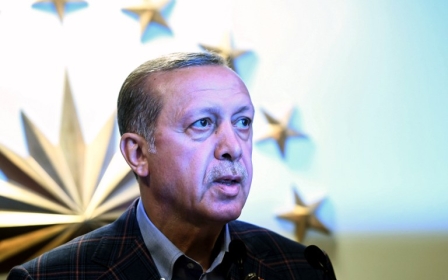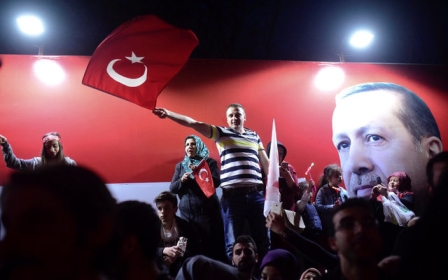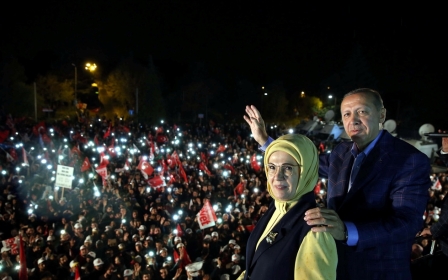Turkish opposition demands reversal of referendum result
Turkey's main opposition party on Monday called for the annulment of a referendum result granting sweeping powers to the president, arguing it had widespread reports of voting irregularities.
Bulent Tezcan, the deputy chairman of the CHP, or the Republican People's Party, said his party would take its challenge to the country's constitutional court and possibly the European Court of Human Rights.
Recep Tayyip Erdogan, Turkey's president, on Sunday secured victory with a narrow 51.5 percent of voters approving plans to turn the country's parliamentary system into a presidential executive, grant him extensive powers and effectively relegate parliament to a junior body.
Turkey's three largest cities - Istanbul, Ankara and Izmir - all voted "No," although "Yes" prevailed in Erdogan's Anatolian heartland.
Tezcan, however, on Monday said he had received complaints from many regions that people had been unable to vote in privacy and said that some ballots were counted in secret. He also said the decision of the YSK election board to accept unstamped ballots was clearly against the law.
"At the moment it is impossible to determine how many such votes there are and how many were stamped later. This is why the only decision that will end debate about the legitimacy [of the vote] and ease the people's legal concerns is the annulment of this election by the YSK," Tezcan said.
He said the CHP would submit complaints to municipal election authorities and the YSK and, depending on the result of those appeals, would go to Turkey's constitutional court, the European Human Court of Rights and any other relevant authority.
European warnings
Erdogan was on Monday to chair a cabinet and security meeting at his presidential palace that could extend the nine-month state of emergency brought in after the 15 July failed coup, Turkish media said.
Overnight sporadic protests by disgruntled "No" voters erupted in parts of Istanbul, with demonstrators banging pots and pans to voice their discontent.
"A victory of the nation," said the headline in the pro-government Yeni Safak daily. "Turkey has won."
But the Cumhuriyet opposition daily focused on the alleged violations: "A shadow fell over the ballot boxes," it said.
The new system would dispense with the office of prime minister and centralise the entire executive bureaucracy under the president, giving Erdogan the direct power to appoint ministers.
It would also mean that Erdogan, who became president in 2014, could seek two more five-year terms leaving him in power until 2029.
Erdogan meanwhile has made it very clear there are no plans to dissolve parliament and call for an early election before scheduled polls in 2019, his deputy prime minister, Mehmet Simsek, told Reuters on Monday.
A day after Turks narrowly voted to change the constitution and hand Erdogan sweeping new powers, Simsek said relations with the European Union would be on areas of common interest, adding that some of the "noise" between Ankara and Europe should die down after the European elections cycle.
There has been some speculation that Erdogan could call a new election so that his new powers could take effect right away, but Simsek dismissed that.
"Yesterday the president made it very clear that elections will be held in November 2019," Simsek said. "It is very clear. We have work to do."
Middle East Eye propose une couverture et une analyse indépendantes et incomparables du Moyen-Orient, de l’Afrique du Nord et d’autres régions du monde. Pour en savoir plus sur la reprise de ce contenu et les frais qui s’appliquent, veuillez remplir ce formulaire [en anglais]. Pour en savoir plus sur MEE, cliquez ici [en anglais].




